Catering services
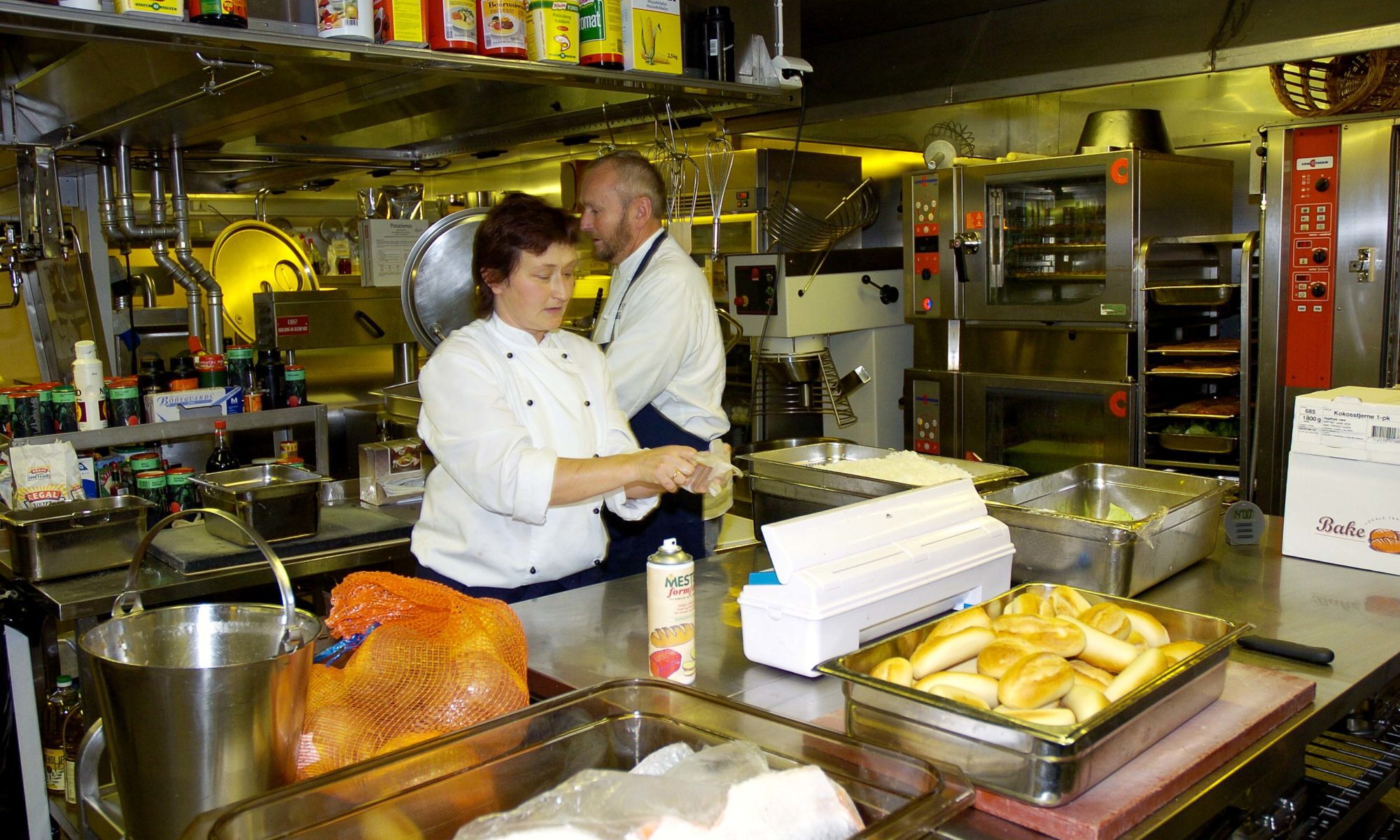
Catering services on Ekofisk
This company was awarded the catering contract for Odeco’s Ocean Traveler and Ocean Viking rigs, which both drilled for Phillips among others.
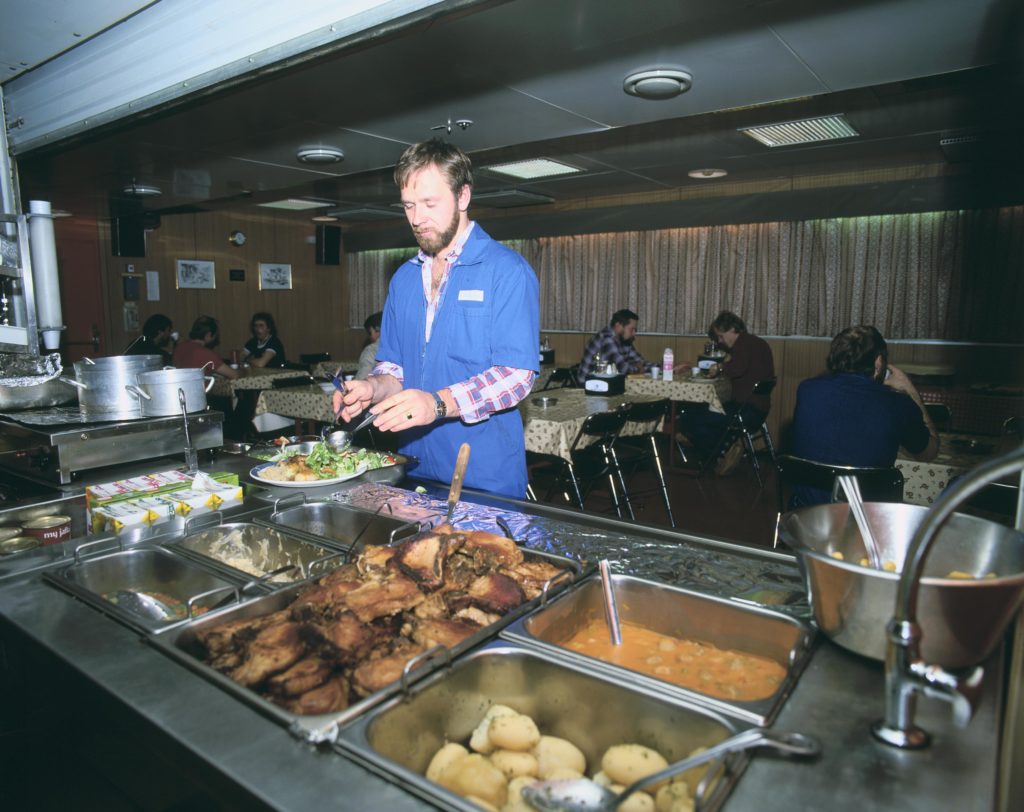
Robert Robertsen was among the employees who got this involvement off the ground. Menus and routines were developed in close collaboration with the American client.
The language on the rigs was English. As a result, by and large only British personnel were initially used in the catering service.
Christiania Dampkjøkken first got hired by Moran, which was drilling at the time for Phillips. As Ekofisk began to be developed, the caterer eventually secured contracts directly from the operator on fixed installations.
Phillips demanded that the British workers, who did not always maintain high standards of cleanliness, were replaced by Norwegians.
Many of these came from the districts around Stavanger, such as Karmøy, Ølen and Etne, but only a small proportion hailed from the actual city.
Other catering firms to hold contracts on Ekofisk installations since 1977 included SAS Catering AS, Stavanger Catering AS and Norske Chalk AS.
The catering service on a platform initially comprised a steward (manager), cooks for day and night shifts, baker and cleaners. As bringing semi-baked goods from land has become common, however, the baker role is vanishing.
Christiania Dampkjøkken was acquired in 1988 by SAS Catering, which changed its name five years later to Eurest Support Services AS (ESS).[REMOVE]Fotnote: SAS Catering AS changed its name to SAS Service Partner AS, Scandinavia Service Partner As, Eurest Offshore AS, Eurest Support Service AS and ESS Offshore AS. It was wholly owned by Scandinavian Airline System until 1993, when it was acquired by Compass Group.
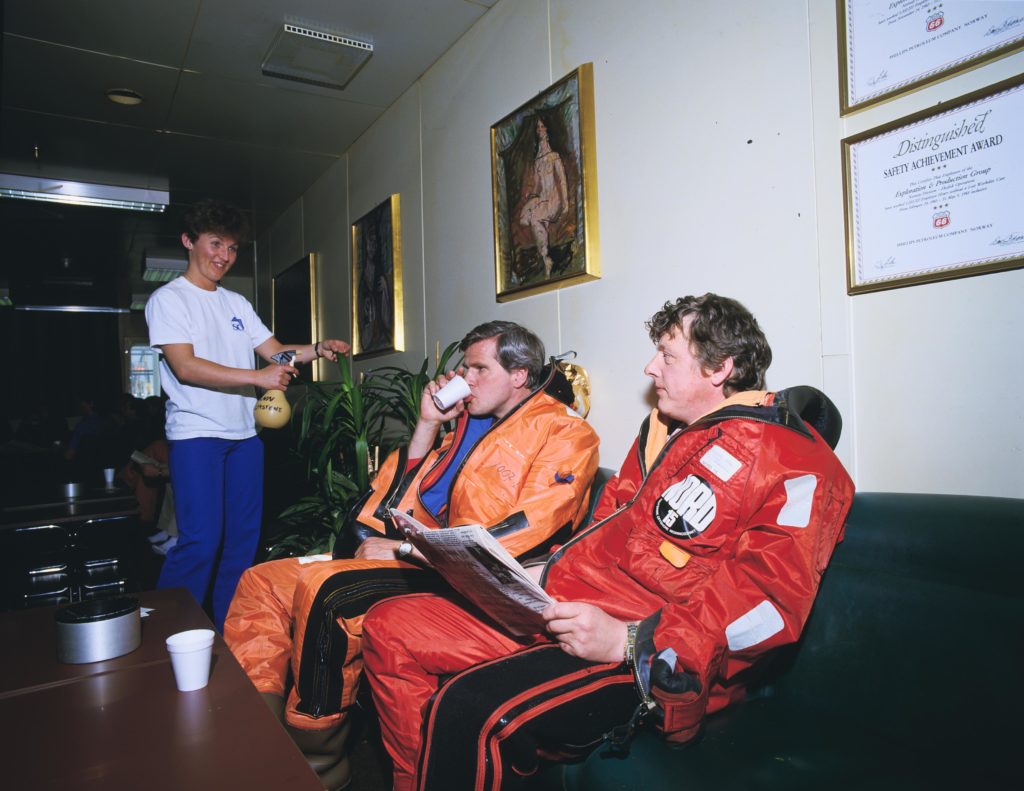
Stavanger Catering was integrated in Eurest in 1995, followed by Norske Chalk four years later.
Eurest accordingly became responsible for all catering services in the Greater Ekofisk Area – including cafeteria operation and cleaning on 10 different units. Contracts for this sector ran for three years at a time.
In 2002, Eurest had about 230 employees on Phillips installations. Women accounted for roughly 20 per of this workforce.
Steward
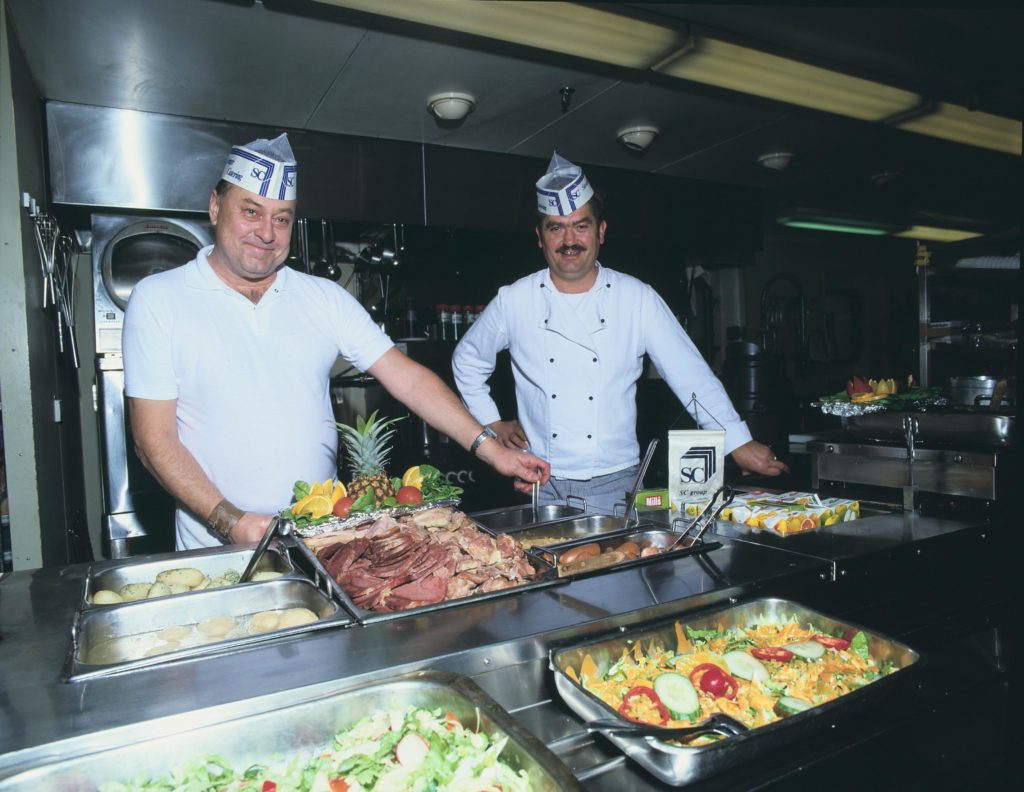
The steward or catering manager runs these services on each platform, with head cook, cleaning supervisor, baker and catering assistants reporting to them.
They carry out administrative duties such as keeping the accounts, ordering food, allocating jobs and deciding on the menus.
Head cook and cooks
The head cook (kitchen manager) is usually a trained chef. With the cooks and assistants, they are responsible for preparing dinner, meals for the night shift, and salads and desserts.
A well-known term offshore, the “cake express” denotes the coffee and cakes served at 09.00. The night cook prepares breakfast and earlier used to bake, but that is no longer common.
The head cook is second-in-command of the catering service and takes charge in the steward’s absence. Work in the kitchen calls for good overall health and an ability to collaborate, organise and comply with hygiene requirements.
Cleaning supervisor
The cleaning supervisor is responsible for organising this work on an installation, which includes washing and making up cabins, leisure areas and so forth. In addition comes the laundry for bedding, work clothes and the like.
Cleaning assignments are now organised on a team basis, while working alone was more common earlier. Three cleaners take a floor together when dealing with large spaces, and work from different ends.
The cabins are so small that cleaning in teams is less efficient, except when changing bed linen.
Catering assistants
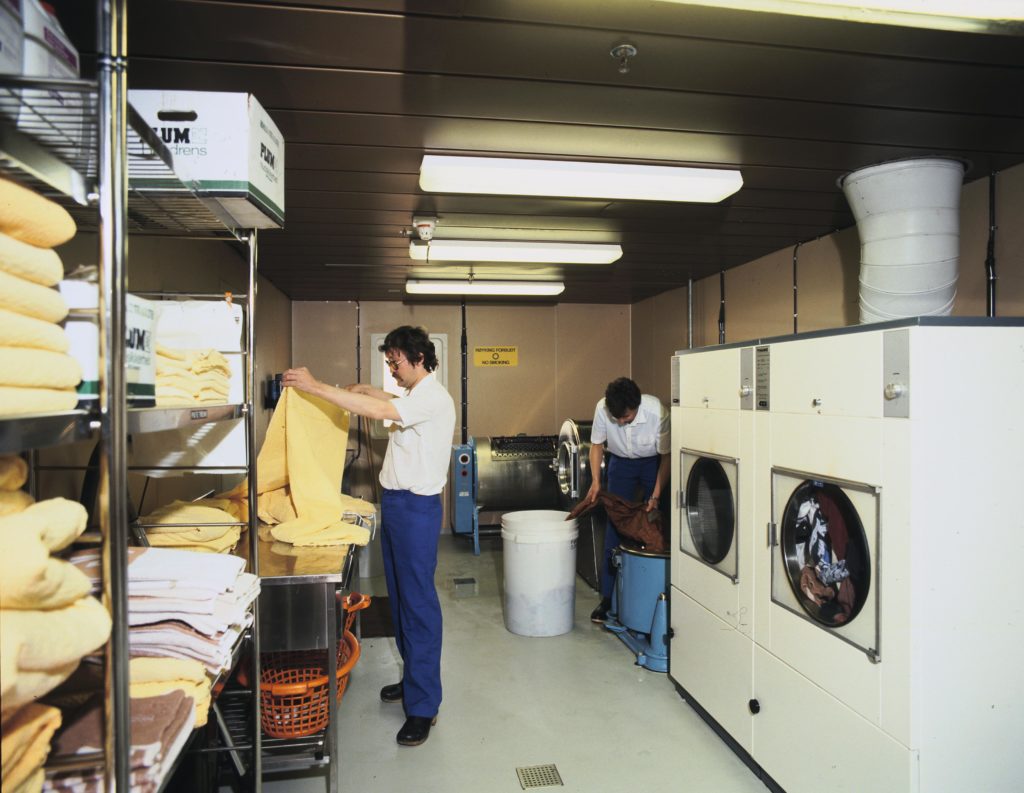
These fall into various categories. Some work in the kitchen, others on cleaning. The night shift cook is usually an assistant, while several are employed during the day on food preparation, washing up and cleaning the galley.
On installations with their own laundry, this is staffed around the clock. Work clothes are usually washed at night and bedding in the day. Some platforms get clean bedding from land.
Dedicated personnel handle laundry on bigger installations with substantial quantities to be washed, while this is done between other assignments on the smaller facilities.

Interesting analysis! It’s amazing how patterns emerge even in seemingly random events. Sometimes a quick mental break is all you need – I’ve been enjoying a bit of solitaire bliss lately to unwind! Great post.